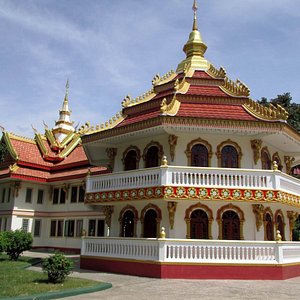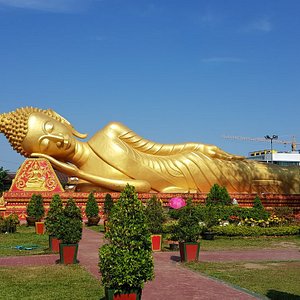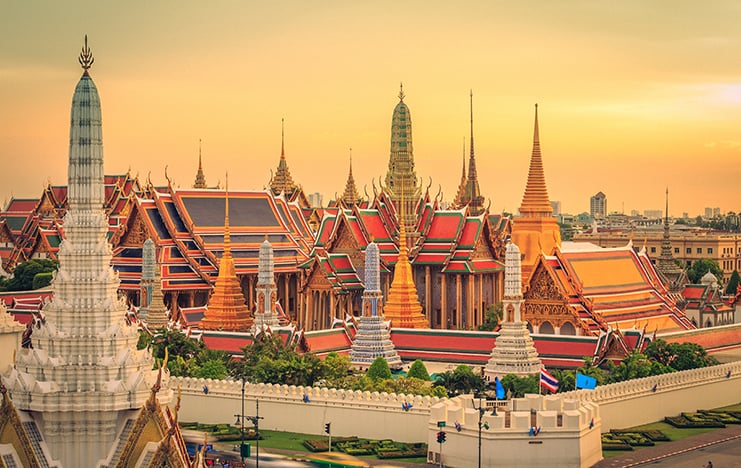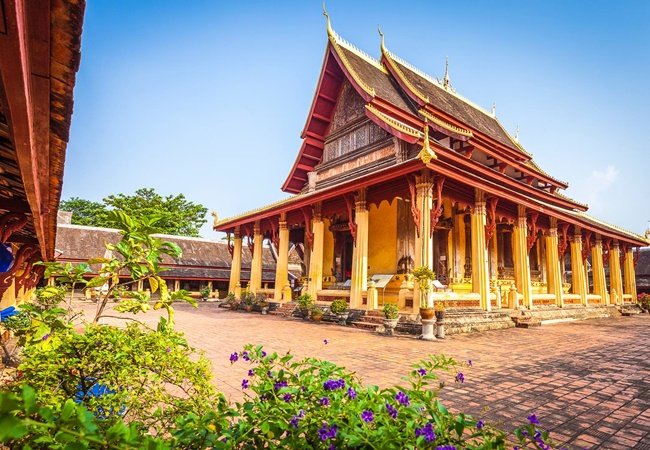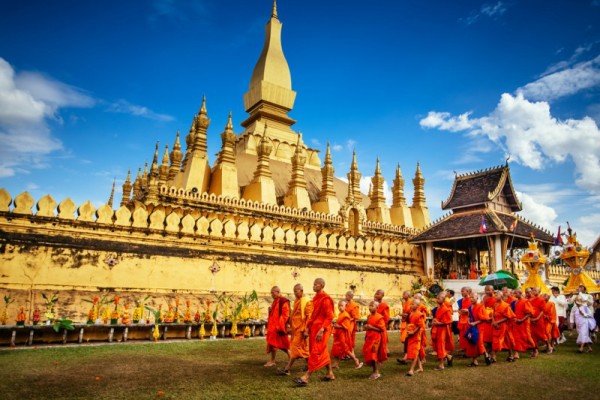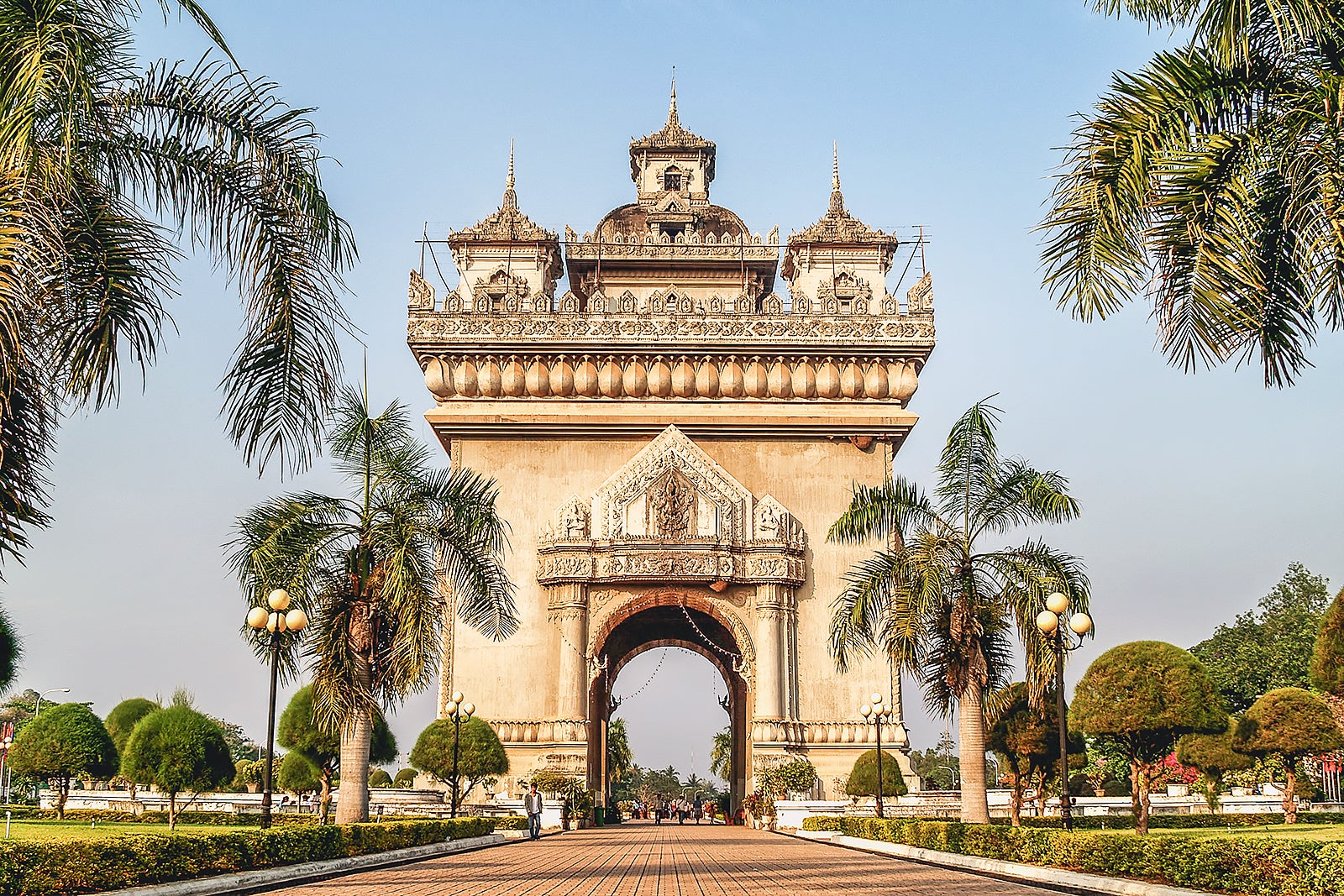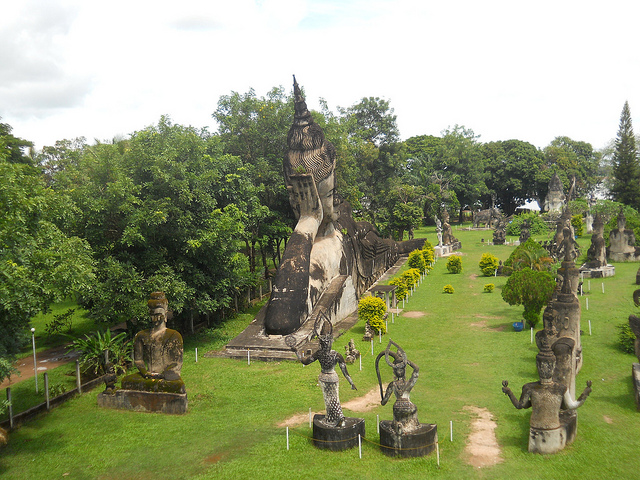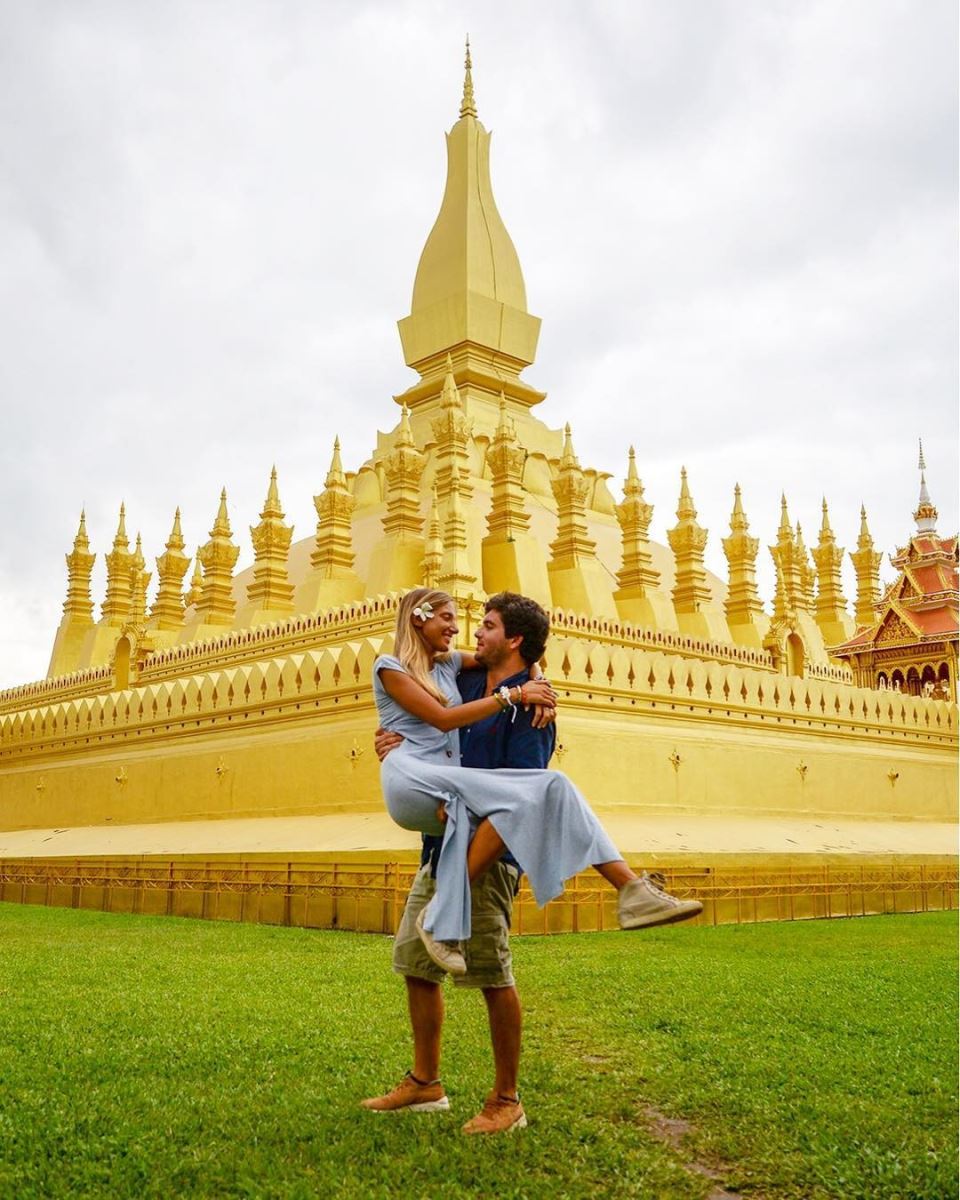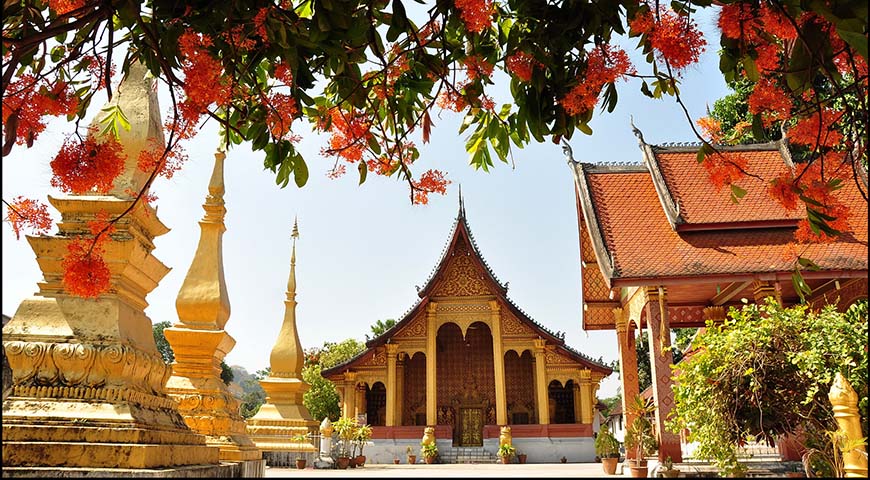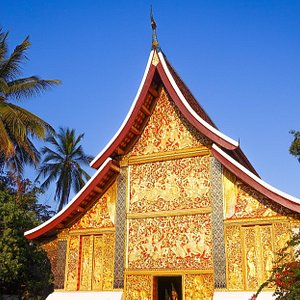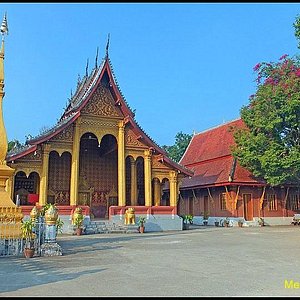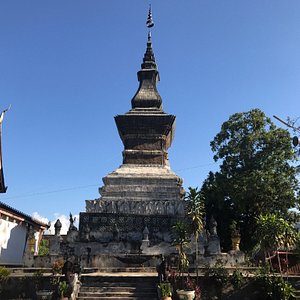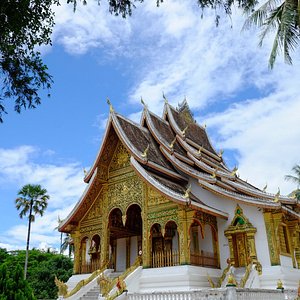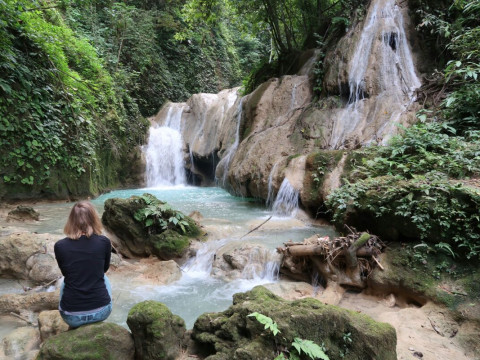Vientiane
Located on a curve of the Mekong River, Vientiane Capital has a recorded history that stretches back to around 1,000 AD. The area was originally settled because of the fertility of the surrounding alluvial plains, and Vientiane became the capital city of Laos around the mid-16th century.
Vientiane Capital is the home to the most significant national monument in Laos: That Luang (Great Stupa), which is the symbol of Lao and an icon of Buddhism in Laos. Of the many beautiful Wats in Vientiane, a visit to Wat Sisaket is a must; built in 1818, this is one of the oldest temples in Vientiane. Other Buddhist holy places are Wat Ong Teu Mahavihan, known for its 16th century bronze Buddha sheltered by a carved wooden masterpiece, and Wat Si Muang, the site of the Lak Meuang or pillar-stone of Vientiane. Wat Si Meuang is also home to the guardian spirit of the city. Hor Phakeo, across the street from Wat Sisaket houses a beautiful collection of Buddha statues, including traditional Lao style of the “Calling for Rain” and “Offering Protection”. Spend a morning in the Lao National Museum, which displays an interesting mixture of revolutionary and contemporary exhibitions. The main sights in Vientiane are only a short walk or bicycle ride from most hotels. Wat Xieng Khouan, better known as the Buddha Park should not be missed: take a tuk-tuk to this unique park that includes Buddhist and Hindu. Shopping for handicrafts is easy in Vientiane Capital; visit Talat Sao (morning market) for a wide range of colourful textiles including silks, wall-hangings and other decorative pieces. For very fine handicrafts, try one of the many upscale galleries in the city center. Keep your eyes open for traditional wood carvings, mulberry paper and a variety of basketry made from bamboo and rattan.
In the old part of Vientiane city, an attractive and interesting settlement is situated along the Mekong River where the ancient temples, museums, monuments and parks are all located just a short distance apart.
The cosmopolitan capital of Laos, Vientiane, has galleries, boutiques, theatres, nightclubs and internet cafe, making it a major attraction for visitors from all around the globe. Although the city is small, it offers visitors a great variety of restaurants serving both Lao and foreign cuisine. When you get hungry try the nation’s signature dish, tam mak-hung (spicy green papaya salad), laap (spicy minced meat salad) and ping kai (fried chicken). Quench your thirst with a refreshing Beer Lao or fresh fruit shake from one of the many small restaurants found along almost every street in town. At dusk, find a spot along the Mekong promenade to enjoy an amazing view of the sunset over the river.
The largest fair, Boun Pha That Luang, is held in Vientiane Capital around mid-November each year. Celebrations begin at Wat Si Muang followed by a procession to That Luang. Festivities last a full week, ending in fireworks on the last night, which coincides with the full moon. In mid-October, the riverbank overflows with spectators watching the annual boat races. Boun Ok Phansa or the last day of Buddhist Lent precedes the boat races by one day. In the evening of Boun Ok Phansa, Lao people prepare small banana leaf boats called heua fai and set them afloat on the Mekong illuminated by candles and incense in a charming ceremony meant to bring good luck and prosperity.
Vientiane Capital is the home to the most significant national monument in Laos: That Luang (Great Stupa), which is the symbol of Lao and an icon of Buddhism in Laos. Of the many beautiful Wats in Vientiane, a visit to Wat Sisaket is a must; built in 1818, this is one of the oldest temples in Vientiane. Other Buddhist holy places are Wat Ong Teu Mahavihan, known for its 16th century bronze Buddha sheltered by a carved wooden masterpiece, and Wat Si Muang, the site of the Lak Meuang or pillar-stone of Vientiane. Wat Si Meuang is also home to the guardian spirit of the city. Hor Phakeo, across the street from Wat Sisaket houses a beautiful collection of Buddha statues, including traditional Lao style of the “Calling for Rain” and “Offering Protection”. Spend a morning in the Lao National Museum, which displays an interesting mixture of revolutionary and contemporary exhibitions. The main sights in Vientiane are only a short walk or bicycle ride from most hotels. Wat Xieng Khouan, better known as the Buddha Park should not be missed: take a tuk-tuk to this unique park that includes Buddhist and Hindu. Shopping for handicrafts is easy in Vientiane Capital; visit Talat Sao (morning market) for a wide range of colourful textiles including silks, wall-hangings and other decorative pieces. For very fine handicrafts, try one of the many upscale galleries in the city center. Keep your eyes open for traditional wood carvings, mulberry paper and a variety of basketry made from bamboo and rattan.
In the old part of Vientiane city, an attractive and interesting settlement is situated along the Mekong River where the ancient temples, museums, monuments and parks are all located just a short distance apart.
The cosmopolitan capital of Laos, Vientiane, has galleries, boutiques, theatres, nightclubs and internet cafe, making it a major attraction for visitors from all around the globe. Although the city is small, it offers visitors a great variety of restaurants serving both Lao and foreign cuisine. When you get hungry try the nation’s signature dish, tam mak-hung (spicy green papaya salad), laap (spicy minced meat salad) and ping kai (fried chicken). Quench your thirst with a refreshing Beer Lao or fresh fruit shake from one of the many small restaurants found along almost every street in town. At dusk, find a spot along the Mekong promenade to enjoy an amazing view of the sunset over the river.
The largest fair, Boun Pha That Luang, is held in Vientiane Capital around mid-November each year. Celebrations begin at Wat Si Muang followed by a procession to That Luang. Festivities last a full week, ending in fireworks on the last night, which coincides with the full moon. In mid-October, the riverbank overflows with spectators watching the annual boat races. Boun Ok Phansa or the last day of Buddhist Lent precedes the boat races by one day. In the evening of Boun Ok Phansa, Lao people prepare small banana leaf boats called heua fai and set them afloat on the Mekong illuminated by candles and incense in a charming ceremony meant to bring good luck and prosperity.
Attractive destination at Vientiane
What's good to eat?
Where to go?
Travel Shopping
Tour Vientiane
One Day In Vientiane
Pick you up at hotel, visit Wat Sisaket (oldest temple), Wat Prakeo (former royal temple), That Luang Stupa (famous structure), Patuxay Monument (Vientiane's Arc de Triumph), and Buddha Park (Hindu & Buddhist sculptures)
- Departure day Contact
- Departure Vientiane
- Arrival Buddha Park
- Regions Laos Tour
- Types of tourism Daily Tour
Half Day In Vientlane
Experience Vientiane's highlights in half a day! Visit the iconic Pha That Luang, marvel at Patuxai's grandeur, and explore the serene Wat Sisaket. A perfect glimpse into Lao culture and history.
- Departure day Contact
- Departure Vientiane
- Arrival Vientiane
- Regions Laos Tour
- Types of tourism Daily Tour


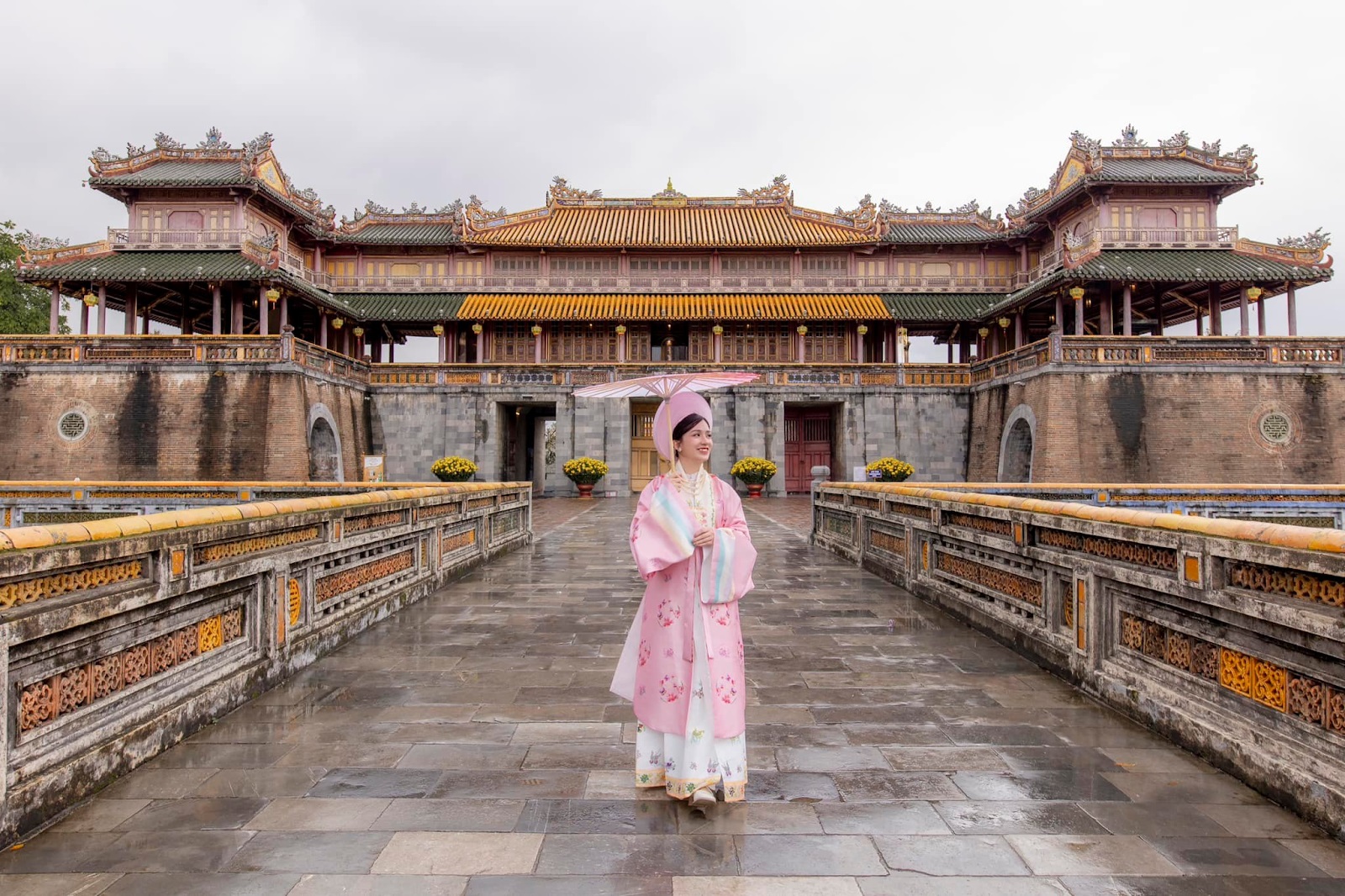
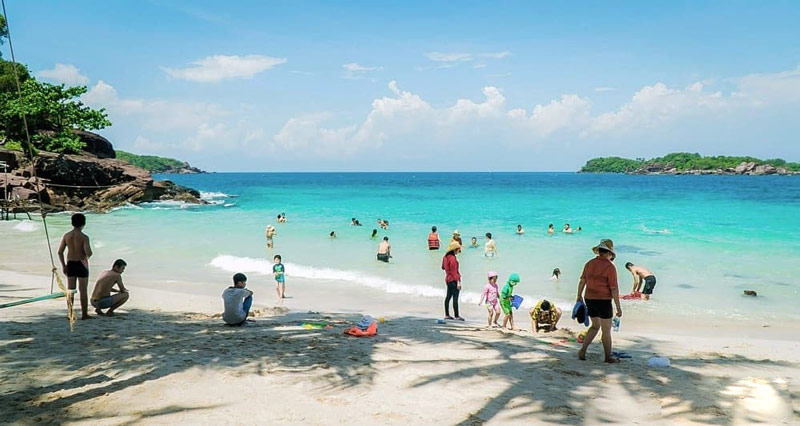
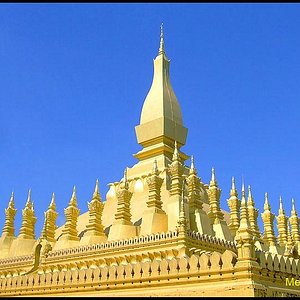
.jpg)
